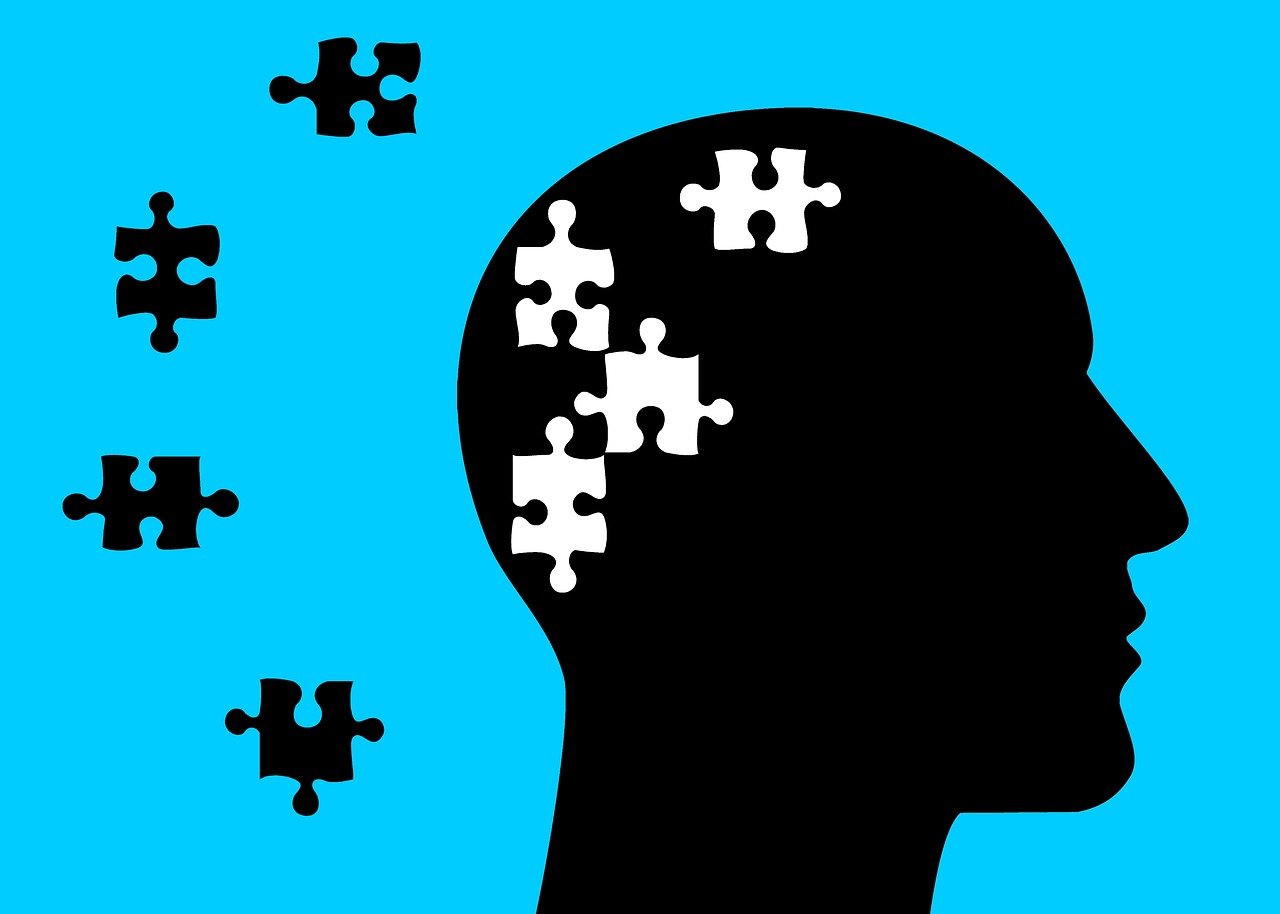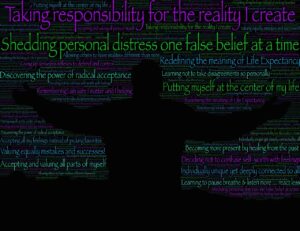Are you looking for a simple and effective way to improve your emotional well-being? Look no further than journaling. This age-old practice of writing down your thoughts and feelings can have a transformative impact on your emotional health. By putting pen to paper, you can gain clarity, process your emotions, and cultivate self-awareness. In this article, we will explore how journaling aids in emotional wellness and discover the myriad of benefits it can bring to your life. So grab a notebook, find a quiet corner, and let’s embark on this journey of self-discovery together.
Self-Expression and Emotional Release
Therapeutic Outlet for Emotions
Journaling is a powerful tool that provides a therapeutic outlet for expressing and processing your emotions. When you put pen to paper or type away on your keyboard, you create a space where you can freely and honestly express yourself without any judgment or fear of repercussions. This act of self-expression allows you to release pent-up emotions, whether they be positive or negative, providing a sense of relief and release.
Catharsis and Emotional Release
One of the primary benefits of journaling is the ability to experience catharsis and emotional release. By journaling, you are able to delve deep into your inner thoughts and feelings, allowing them to flow freely onto the pages. This process of releasing your emotions helps to provide a sense of release and catharsis, as if a weight has been lifted off your shoulders. It allows you to let go of emotions that may be causing you distress or holding you back, making space for healing and growth.
Validation of Emotions
Sometimes, we may struggle with validating our own emotions, dismissing them as insignificant or unworthy. However, through journaling, you can offer yourself validation for your own emotions. As you write, you give yourself permission to acknowledge and validate how you feel, fostering a deep sense of self-compassion and understanding. This validation of your emotions can be incredibly empowering, allowing you to embrace them fully and learn from them.
Releasing Negative Feelings
Negativity can weigh heavily on our minds and hearts, hindering our overall well-being. Journaling serves as a powerful tool for releasing these negative feelings. By venting and expressing your negative emotions in your journal, you are able to separate yourself from them and gain a new perspective. This process creates space for you to let go of negativity and make room for positive emotions and experiences. As you release negative feelings onto the pages of your journal, you begin to free yourself from their hold, creating a pathway towards healing and personal growth.
Enhancing Self-Awareness
Reflection and Insight
Journaling provides a space for reflection and self-exploration, enabling you to gain a deeper understanding of yourself. When you take the time to write about your thoughts, experiences, and emotions, you create an opportunity for introspection. This process allows you to explore your own thoughts and feelings more thoroughly, gaining valuable insights into your own psyche. Through reflection and insight, journaling can enhance self-awareness, helping you become more conscious of your thoughts, behaviors, and patterns.
Identifying Patterns and Triggers
As you continue to journal, you may start to notice patterns and triggers that impact your emotional well-being. By consistently writing about your experiences and emotions, you can identify recurring themes, thought patterns, and triggers that may contribute to certain emotional states or behaviors. This self-awareness enables you to recognize these patterns and triggers more easily in your day-to-day life, empowering you to make conscious choices and implement strategies to promote emotional well-being.
Recognizing Emotional States
Journaling allows you to become more attuned to your emotional states and understand the nuances of your feelings. By regularly checking in with yourself and describing your emotions in your journal, you can develop a heightened sense of emotional awareness. This increased awareness helps you recognize and identify your emotions more accurately, distinguishing between different states such as happiness, sadness, frustration, and excitement. Understanding your emotional states enables you to respond to them more effectively and make choices that align with your emotional well-being.
Understanding Personal Values and Beliefs
Journaling can serve as a tool for exploring and understanding your personal values and beliefs. By writing about your experiences, challenges, and successes, you gain insights into what truly matters to you and what drives your actions. Through introspection, you can identify the principles and values that shape your decisions and behaviors. This understanding of your personal values and beliefs provides a foundation for authentic living, helping you align your actions with what truly resonates with your core self.

Stress Reduction and Coping Mechanisms
Reducing Anxiety and Overwhelm
In today’s fast-paced and demanding world, anxiety and overwhelm can easily take hold of our lives. Journaling offers a valuable method for reducing anxiety and overwhelm, granting you a safe space to unload your thoughts and concerns. Writing down your worries and fears allows you to externalize them, preventing them from becoming overwhelming and consuming your mind. By gaining clarity and perspective through journaling, you can alleviate stress and reduce the impact of anxiety on your overall well-being.
Clarity and Problem-Solving
When faced with challenging situations, journaling provides an avenue for gaining clarity and finding solutions. As you write about the difficulties you are facing, you are able to organize your thoughts and analyze them objectively. This process of writing helps to untangle complex emotions and dilemmas, allowing you to see the bigger picture and consider alternative perspectives. Journaling can help you become a better problem-solver, enabling you to approach challenges with a clearer mind and make more informed decisions.
Finding Perspective
Sometimes, we may find ourselves trapped in negative thought cycles, unable to see beyond our current situation. Journaling can serve as a powerful tool for finding perspective and shifting our mindset. By writing about your thoughts and experiences, you create distance between yourself and the issue at hand. This distance allows for a fresh perspective to emerge, helping you see things from a different angle. Through journaling, you can gain a broader outlook on life, challenging negative beliefs and fostering a more positive and resilient mindset.
Developing Healthy Coping Strategies
Journaling can be a valuable tool for developing healthy coping strategies to manage stress and difficult emotions. As you write about your experiences and emotions, you can explore different ways to navigate challenging situations and regulate your emotions. By reflecting on your journal entries, you can identify coping mechanisms that have been effective in the past and brainstorm new strategies to incorporate into your life. Through journaling, you can cultivate a repertoire of healthy coping strategies, empowering you to navigate life’s challenges more effectively.
Emotional Processing and Healing
Processing Traumatic Experiences
For individuals who have experienced trauma, journaling can be a powerful tool for processing and healing. By writing about traumatic experiences and their associated emotions, you create an outlet for acknowledging and exploring feelings that may have been suppressed or ignored. This process allows you to gradually make sense of your experiences, process the associated emotions, and integrate the trauma into your life story. Journaling can provide a safe space for healing, allowing you to move forward with greater strength and resilience.
Grief and Loss
Journaling can provide solace and support during times of grief and loss. When mourning the loss of a loved one or experiencing other forms of grief, writing can serve as a way to remember, honor, and process these emotions. Through journaling, you can express the pain, sadness, and confusion that arise from grief, allowing yourself to fully experience and navigate the grieving process. Writing about your loss can provide a sense of release, easing the burden of grief and helping you find meaning and healing.
Resolving Anger and Resentment
Unresolved anger and resentment can be emotionally and mentally draining. Journaling offers a safe and constructive outlet for processing and resolving these complex emotions. By writing about the causes of your anger and resentment, you can gain a deeper understanding of the underlying issues. As you explore your feelings on paper, you can begin to let go of the negative energy associated with these emotions and move towards forgiveness and healing. Journaling can be a stepping stone towards releasing anger and resentment, fostering emotional well-being and personal growth.
Healing Emotional Wounds
Through the act of journaling, you create a space for healing emotional wounds and past traumas. Writing can help you unpack and explore your emotional scars, creating an opportunity for healing and closure. By revisiting and acknowledging these wounds, you can process the associated pain and begin the journey towards healing. Journaling provides an outlet for self-compassion and self-discovery, enabling you to cultivate a greater sense of acceptance, resilience, and emotional well-being.

Enhanced Emotional Intelligence
Identifying and Managing Emotions
Journaling can enhance emotional intelligence by helping you identify and manage your emotions more effectively. As you write about your experiences and emotional states, you become more attuned to how you feel and gain a deeper understanding of your emotional landscape. Journaling serves as a practice ground for recognizing and labeling your emotions, enabling you to navigate them with greater self-awareness. This increased emotional intelligence allows for more effective emotional regulation, improved decision-making, and enhanced interpersonal relationships.
Empathy and Understanding Others
Through the process of journaling, you develop a greater capacity for empathy and understanding towards others. As you explore your own emotions and experiences, you cultivate a deeper sense of compassion and empathy for yourself. This increased self-compassion naturally extends to others, allowing you to connect with their emotions and experiences more authentically. By empathizing with others, you can build stronger relationships, foster deeper understanding, and cultivate a greater sense of community.
Improved Emotional Regulation
Journaling can help improve emotional regulation by providing a method for processing and expressing emotions in a healthy and constructive manner. By writing about your emotions, you create distance between yourself and the intensity of the emotions, allowing for greater self-control and regulation. Articulating your feelings in writing helps you gain perspective, manage stress, and respond more skillfully to challenging situations. Journaling can be a powerful tool for cultivating emotional regulation, enabling you to navigate life’s ups and downs with greater ease and resilience.
Developing Social Skills
As you journal and reflect upon your experiences and emotions, you also develop and refine your social skills. By exploring different scenarios, interactions, and interpersonal dynamics on paper, you can gain insights into your own communication style and patterns. Through this process of self-reflection, journaling can help you become more aware of how your words and actions impact others. Developing social skills through journaling can lead to improved relationships, enhanced conflict resolution, and a more meaningful and fulfilling social life.
Bolstering Mental Health
Reducing Symptoms of Depression
Journaling can be an effective tool for reducing symptoms of depression. When you write about your experiences, emotions, and thoughts, you create space for introspection and self-reflection. This process allows you to identify negative thought patterns and challenge them, leading to a shift in mindset. Journaling can help you reframe negative thoughts, cultivate gratitude, and focus on positive aspects of your life. By consistently engaging in journaling practices, you can bolster your mental health and experience a reduction in depressive symptoms.
Improving Mood and Well-being
The act of journaling itself can have a positive impact on your mood and overall well-being. Research has shown that expressing your thoughts and emotions through writing can lead to increased feelings of positivity, improved self-esteem, and greater overall life satisfaction. By regularly engaging in journaling, you create a habit of focusing on the positive aspects of your life and processing stressful or challenging events. Through this habit, you can cultivate a more positive mindset, leading to improved mood and well-being.
Boosting Self-Esteem
Journaling can boost self-esteem by providing a platform for self-reflection and self-acceptance. By regularly recording your achievements, lessons learned, and personal growth in your journal, you create a tangible record of progress and success. This practice bolsters your self-esteem, validates your accomplishments, and reminds you of the valuable insights and strengths you possess. By consistently recognizing and celebrating your achievements through journaling, you can boost your self-esteem and foster a greater sense of self-worth.
Building Resilience
Journaling can be a powerful tool for building resilience and coping with adversity. By documenting your experiences, challenges, and emotions in your journal, you create a narrative of your resilience journey. This practice allows you to reflect on how you have overcome obstacles in the past, reminding you of your own strength and capability. By regularly engaging in journaling, you build resilience by recognizing your ability to navigate difficult circumstances, adapt to change, and learn from adversity. Journaling can help you cultivate a resilient mindset, enabling you to bounce back from challenges and thrive in the face of adversity.

Promoting Positive Thinking
Gratitude and Appreciation
Journaling can promote positive thinking by cultivating gratitude and appreciation. By regularly noting down what you are grateful for in your journal, you shift your focus towards the positive aspects of your life. This practice of expressing gratitude helps rewire your brain to seek out and acknowledge moments of joy, beauty, and kindness. By incorporating gratitude into your journaling routine, you create a positive mindset and foster a deeper sense of contentment and happiness.
Fostering Optimism
Through the act of journaling, you can foster optimism by reframing negative thoughts and cultivating a positive outlook. By consciously challenging negative beliefs and replacing them with more positive and empowering perspectives, you can reshape your mindset. Writing about positive experiences, future goals, and hopeful aspirations can inspire optimism and create a sense of possibility. Journaling can serve as a tool for nurturing optimism, enabling you to approach life with a positive and hopeful attitude.
Reframing Negative Thoughts
Journaling provides a platform for reframing negative thoughts and beliefs that may be hindering your well-being. By writing down negative thoughts and challenging their accuracy or validity, you can gain a new perspective and reframe them in a more positive light. The act of journaling allows you to examine negative thoughts objectively, analyzing their origins and exploring alternative interpretations. Through this process, you can reframe negative thoughts and develop a more positive and empowering mindset.
Creating a Positive Mindset
Engaging in regular journaling practices can help you cultivate a positive mindset. By consistently focusing on positive experiences, thoughts, and emotions in your journal, you train your brain to seek out and acknowledge the positive aspects of your life. As you document moments of gratitude, joy, and accomplishment, you create a positive narrative that influences your outlook on life. By creating a positive mindset through journaling, you can increase your overall life satisfaction and experience greater happiness and fulfillment.
Tracking Personal Growth and Progress
Goal Setting and Achievements
Journaling provides a space for setting goals and tracking your progress and achievements. By documenting your goals in your journal, you make them tangible and accountable. Writing about your progress towards these goals allows you to reflect on your accomplishments, no matter how small, and celebrate your successes. Journaling can help you stay motivated, track your growth, and recognize the milestones you have achieved along your personal development journey.
Tracking Behavioral Changes
When attempting to make positive changes in your life, journaling can serve as a valuable tool for tracking your behavioral changes. By writing about your thoughts, feelings, and actions, you gain insights into your behaviors and the progress you are making towards your desired outcomes. Journaling allows you to identify patterns and trends in your behavior, enabling you to make informed adjustments and course corrections. Tracking behavioral changes through journaling helps you stay accountable to yourself and provides a roadmap for personal growth and transformation.
Identifying Areas of Improvement
Through the act of journaling, you can identify areas of improvement and plan for personal growth. By regularly reflecting on your experiences and emotions, you gain self-awareness and insight into aspects of yourself that may benefit from further development. Journaling allows you to identify recurring patterns, obstacles, and areas where you may want to focus your attention. By shining a light on these areas of improvement, journaling can guide you towards setting new goals and taking steps towards personal growth and self-improvement.
Celebrating Milestones
Journaling provides a means of celebrating milestones and acknowledging personal achievements. By recording your progress, your triumphs, and your moments of growth in your journal, you create a record of your personal milestones. Celebrating milestones is important because it reinforces your progress, boosts your motivation, and provides a sense of fulfillment. By celebrating your achievements through journaling, you cultivate a sense of pride, self-appreciation, and optimism for future growth.

Creating a Safe Space for Reflection
Non-judgmental Self-Exploration
Journaling provides a safe and non-judgmental space for self-exploration. As you write, you grant yourself the freedom to express your innermost thoughts, feelings, and ideas without fear of judgment or criticism. Journaling allows you to be completely honest and authentic with yourself, fostering self-acceptance and self-compassion. The act of journaling provides you with a safe space to explore your own values, beliefs, dreams, and fears, without the pressure to conform to societal expectations or norms.
Private Personal Documentation
Your journal serves as a private documentation of your personal journey, providing a space to express yourself authentically, while keeping your thoughts and experiences confidential. Journaling allows you to record important moments, reflections, and lessons learned, creating a personal archive that you can revisit and reflect upon whenever you choose. This act of private personal documentation offers a sense of security and privacy, ensuring that your thoughts and feelings remain solely for your own reflection and growth.
Unfiltered Expression
Through journaling, you have the opportunity to express yourself freely and without filters. The act of writing allows you to bypass the constraints and self-censorship that may arise in verbal communication. You can explore and express your deepest emotions, desires, and vulnerabilities with complete authenticity and honesty. By engaging in unfiltered expression through journaling, you tap into the power of self-discovery, self-reflection, and personal growth.
Emotional Privacy
Your journal provides a sanctuary of emotional privacy where you can fully embrace and explore your emotions without fear of judgment or intrusion. Unlike sharing your thoughts and feelings with others, journaling allows you to have complete control over your emotions and experiences. You are free to express the good, the bad, and the ugly, without worrying about how your emotions may affect others or be interpreted. This emotional privacy enables you to engage in self-healing, introspection, and personal growth at your own pace and in your own way.
Overall Well-being and Life Satisfaction
Emotional Balance
Journaling offers a pathway towards emotional balance and well-being by providing a channel for self-expression, reflection, and processing of emotions. By consistently engaging in journaling practices, you create an outlet for releasing negative emotions, validating your own feelings, and gaining insights into your emotional landscape. The act of journaling enables you to cultivate emotional regulation, resilience, and an overall sense of balance in your life, leading to enhanced well-being and life satisfaction.
Increased Self-Actualization
Journaling supports self-actualization by providing a vehicle for self-discovery, self-reflection, and personal growth. Through the process of journaling, you have the opportunity to explore your values, goals, and aspirations, and align your actions with your authentic self. The act of regularly engaging in journaling practices allows you to tap into your deepest desires, passions, and potentials. By actively participating in your own self-actualization through journaling, you can experience a greater sense of fulfillment, purpose, and personal growth.
Improved Relationships
When you engage in regular journaling practices, you deepen your understanding of yourself, your emotions, and your needs. This enhanced self-awareness also extends to your relationships with others. By knowing yourself better, you can communicate your thoughts, emotions, and boundaries more effectively, improving the quality of your connections with others. Journaling fosters empathy, understanding, and effective communication, enabling you to build stronger and more fulfilling relationships.
Holistic Wellness
The benefits of journaling extend beyond just emotional well-being. Engaging in regular journaling practices can lead to holistic wellness by fostering the integration of mind, body, and soul. By exploring your thoughts, emotions, and experiences through journaling, you gain insights into the interconnectedness of various aspects of your life. The act of journaling allows you to identify areas that may be out of balance and make intentional choices to restore harmony and well-being. By nurturing holistic wellness through journaling, you can experience a greater sense of harmony, fulfillment, and overall satisfaction in your life.
In conclusion, journaling is a powerful tool that aids in emotional wellness in various ways. From providing a therapeutic outlet for emotions to enhancing self-awareness, reducing stress, facilitating emotional processing and healing, bolstering mental health, promoting positive thinking, tracking personal growth, creating a safe space for reflection, and contributing to overall well-being and life satisfaction, journaling offers a plethora of benefits for individuals seeking emotional wellness. By incorporating journaling practices into your daily routine, you can harness the power of self-expression and self-reflection, leading to improved emotional well-being and a more fulfilling life.






